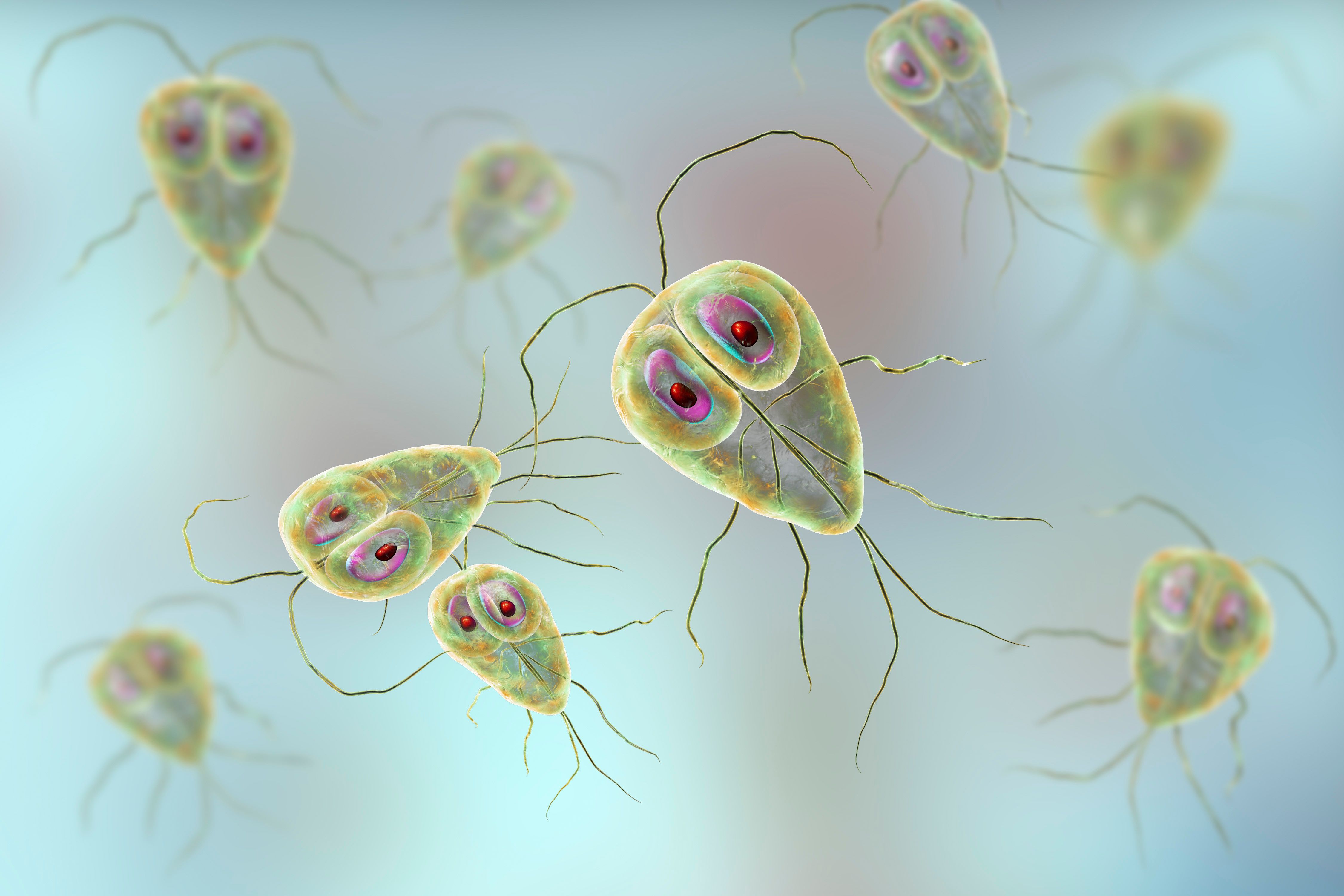Integrative approach to treating Giardia lamblia infections - DVM 360

Pair traditional and holistic treatments for the most successful patient outcomes
Giardia lamblia is a tiny parasite that lives freely in the environment and is spread through fecal-contaminated water, soil, and food.1 It attacks the intestine of various hosts, including dogs, cats, and even humans, causing gastrointestinal distress such as diarrhea, abdominal discomfort, flatulence, vomiting, and nausea. Younger dogs and cats tend to be at greater risk of infection.2
Treating a G lamblia infection can be challenging. In a dvm360® interview, Brian Herrin, DVM, PhD, DACVM, an assistant professor at Kansas State University College of Veterinary Medicine in Manhattan, Kansas, explained, "These protozoa organisms, they can kind of asexually reproduce. If you kill 98% of them, you leave 2 or 3 of them in there, [and] they just reproduce and make more. And so it's really easy to have continued infections."
To completely clear animals of the parasite, the best approach is coupling traditional and holistic treatments that support gut and immune health.
Traditional treatments
Historically, the antibiotic metronidazole has been used to treat G lamblia. Today, however, veterinarians tend to use this drug with fenbendazole, which is a benzimidazole antiparasitic medication.3 Herrin noted that although metronidazole works to clear up clinical symptoms and kill bacteria in the intestines, it's not known whether this antibiotic has a mechanism of action on G lamblia itself.
"So [metronidazole] may be calming things down so that the immune system can kind of take control of [G lamblia]," he said, explaining that fenbendazole does have a mechanism of action on G lamblia and adding, "We do want to try to make sure that we're putting fenbendazole first and then plus or minus adding metronidazole, rather than trying to treat solely with metronidazole now."
Some challenges of treating G lamblia with these drugs include cost, dosage (tailoring to the pet's species and size), and patient adherence. "The fact that [metronidazole] is so horrible tasting makes it hard to get into the patient. You must have compliance with the patient, compliance with the owner, and have the appropriate size so it's a safe treatment," said Patrick Mahaney, VMD, CVA, CVJ, president and medical director of California Pet Acupuncture and Wellness Inc in Los Angeles, in an interview with dvm360.
Advertisement
Holistic treatments
When it comes to holistic treatments for G lamblia, Mahaney noted, "These are just practical things that support animals on a general day-to-day basis." He recommended a higher fiber diet that promotes more bowel movements for general digestive tract support and to push G lamblia out. Probiotics and prebiotics can also support gut health.
Prebiotics are nondigestible food ingredients that help healthy bacteria grow in the gut, whereas probiotics are the beneficial bacteria that promote normal function of the digestive tract and help balance out the effects of antibiotics. "[Dogs] want to have a healthy microbiome so that hopefully [their] gut will be more resistant to [G lamblia] in the first place. And then also the effects of the [G lamblia] won't overly damage the inside of the intestines," Mahaney explained.
Probiotics and prebiotics are available in capsule and powder forms and can also be found in food. If clients are giving their pets food-based probiotics and prebiotics, it's important to ensure they know to avoid those with artificial flavors, sweeteners, or other ingredients harmful to dogs and flavors pets are averse to such as lemon or citrus.
Supplements can help ease a dog's digestive tract as well. Beneficial ingredients include ginger, aloe vera leaf, cat's claw, and glutamine.
Integrative approach
Herrin and Mahaney emphasized that holistic methods shouldn't solely be used in animals with G lamblia and that an integrative approach proves most effective. For example, although higher fiber diets keep stools firmer, probiotics help reduce the negative effects of antibiotics on gut flora, and other supplements and nutrients can ease the digestive tract so the immune system can focus on fighting off future infections.
Mahaney said that he is a "big believer" in combining traditional and holistic treatment methods. "I do that all the time in practice, and I feel as you treat [G lamblia]…sometimes the [adverse effects from the medication can worsen clinical signs], so we have to be able to support the digestive tract and support the overall body health and immune health so that the treatment can be effective."
References
- Parasites‑Giardia. CDC. May 19, 2022. Accessed March 16, 2023. https://www.cdc.gov/parasites/giardia/index.html
- Giardia and pets. CDC. February 26, 2021. Accessed March 16, 2021. https://www.cdc.gov/parasites/giardia/prevention-control-pets.html
- The magic of fenbendazole. Cornell University. December 7, 2014. Accessed March 10, 2023. https://blogs.cornell.edu/cornellsheltermedicine/2014/12/07/the-magic-of-fenbendazole
Comments
Post a Comment